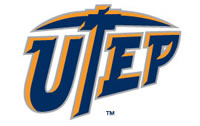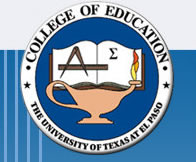
Bill Robertson, Ph.D. - Classes
Teacher Education Department
TED 5314 - Current Topics Science Education
Syllabus
Instructor: Dr. Bill Robertson
Phone: 747-8608
Office: Education Building, Room 606
Email: robertson@utep.edu
Web Site: http://utminers.utep.edu/robertson/classes/ted5314/default.htm
Office hours: By Appointment
Class Meetings
5:00 pm - 7:30 pm MTWR
Jun 27, 2005 - Jul 22, 2005
Education Building 405
Course Description
Current Topics In Science Education provides an opportunity to develop compentencies necessary to deal effectively with science instruction; includes curriculum, concepts, teaching strategies, and skills necessary to integrate content and teaching strategies.
The class utilizes a Problem-based learning (PBL) approach to curriculum development and delivery. Problem-based learning (PBL) is an inquiry-based approach that can be defined as both a curriculum and a process. The curriculum consists of carefully selected and designed problems that engage the learner in the process of acquiring critical knowledge, developing proficiency in problem solving, engaging in self-directed learning, and participating in collaborative teams. This curriculum integration process engages students in collaborative research that can be shared in the classroom, across a community or around the globe. PBL features open-ended and cooperative activities that deal with real world issues and scenarios.
The curriculum approach will follow the Critical Thinking Curriculum Model (CTCM), which is a multidisciplinary approach designed to encompass computer technology, a current real world issue, and effective learning and teaching practices. As a PBL curriculum, it encompasses the political, social/cultural, economic, and scientific realms in the context of a global issue. In this way, students realize the importance of their schooling by applying their efforts to an endeavor that ultimately will affect their future.
Course Goals
- To provide opportunities to develop and apply critical thinking and problem solving skills on a complex real-world problem.
- To promote cooperative learning through successful teamwork.
- To develop the connections between scientific concepts and everyday life.
- To increase understanding of the science process.
- To increase public understanding of the issues relating to the identified complex real-world problem.
Text
Richard Howell Allen (2004). Impact Teaching: Ideas and Strategies for Teachers to Maximize Student Learning, Allyn & Bacon, Cambridge, MA.
Required Software
Dreamweaver MX 2004 (Educational or Full Version) is the professional choice for building web sites and applications. It provides a powerful combination of visual layout tools, application development features, and code editing support. Students will develop and post their own Web site on the UTEP domain as a final product.
Other Course Materials
Additional Articles will be posted as links and/or as handouts for students to read prior and will be assigned regularly.
Grading
A: 90% - 100%, B: 80% - 89%, C: 70%-79%, D: 60%-69%, F: <60%
The overall grade for the class for each student will be calculated as follows: 20% classroom daily attendance & participation, 40% short research papers, 20% Final Web Site Product, 20% Final Presentation.
Academic Dishonesty
Academic dishonesty is prohibited and is considered a violation of the UTEP Handbook of Operating Procedures. It includes, but is not limited to, cheating, plagiarism, and collusion. Cheating may involve copying from or providing information to another student, possessing unauthorized materials during a test, or falsifying research data on laboratory reports. Plagiarism occurs when someone intentionally or knowingly represents the words or ideas of another person’s as ones’ own. And, collusion involves collaboration with another person to commit any academically dishonest act. Any act of academic dishonesty attempted by a UTEP student is unacceptable and will not be tolerated. Violations will be taken seriously and will be referred to the Dean of Students Office for possible disciplinary action. Students may be suspended or expelled from UTEP for such actions.
Students with Disabilities
If you have or believe you have a disability, you may wish to self-identify. You can do so by providing documentation to the Office of disabled Student Services located in Union E Room 203. Students who have been designated as disabled must reactivate their standing with the Office of Disabled Student Services on a yearly basis. Failure to report to this office will place a student on the inactive list and nullify benefits received. If you have a condition which may affect your ability to exit safely from the premises in an emergency or which may cause an emergency during class, you are encouraged to discuss this in confidence with the instructor and/or the director of Disabled Student Services. You may call 747-5148 for general information about the Americans with Disabilities Act (ADA).
Syllabus | Schedule | Research Assignments| Student Web Sites| Evaluation | Links

Bill Robertson, Ph.D. (robertson@utep.edu)
Teacher Education Department, College of Education, University of Texas at El Paso